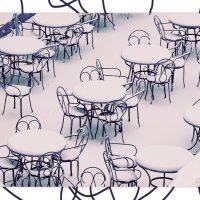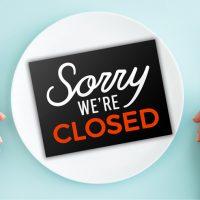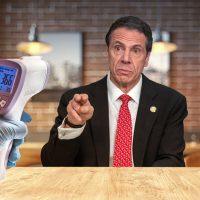UPDATED Sept. 15, 2020, 2:52 pm: A Brooklyn ale house aims to drive a stake into Gov. Andrew Cuomo’s midnight food curfew.
The Graham, at 151 Meserole Street in Williamsburg, argues in a federal lawsuit that the coronavirus “does not behave as a vampire, infecting others only when the moon is out.”
The bar’s Sept. 14 complaint, filed in New York’s Eastern District, says it is “desperately struggling to pay its rent” and that the curfew is sucking the life out of its business by restricting dining hours.
Like every restaurant in the state, the Graham was ordered to shut its doors to diners starting March 17. Cuomo finally allowed indoor dining in New York City to resume Sept. 30, but limited restaurants to 25 percent of capacity and a midnight closing time.
That was another nail in the Graham’s coffin, says its lawsuit, after a series of unpredictable Cuomo orders including that meals must be served with drinks and that chicken wings do not count. (The chicken rule was eased days later by the State Liquor Authority.)
Read more



The eatery flapped its wings at Cuomo’s “myriad of constantly changing and unworkable rules” that give restaurants no chance to comply before being hit with fines for “hyper-technical violations that did not exist days earlier.”
Since March, the state has suspended 168 businesses’ liquor licenses and filed 926 charges against businesses for breaking local regulations and failing to comply with Cuomo’s various executive orders, according to data from the State Liquor Authority. The Graham is not listed among those punished.
However onerous the rules, the lawsuit acknowledged that they mostly respond to the coronavirus. But a midnight curfew, the suit said, does not help prevent the spread of the coronavirus.
“The state has not explained why this rule is necessary, why it is imposed on New York City and not the rest of the state, and why it continues to issue rules without working with its industry partners to solve problems,” said Jonathan Corbett, a civil rights attorney in Hollywood, California, who filed the Graham’s complaint.
Indeed, the midnight curfew makes dining more dangerous by crowding customers into an arbitrary time window, the lawsuit says. Cuomo has said indoor dining is conducive to spreading the virus in part because people linger in restaurants for hours. The curfew is an attempt to limit that.
A spokesperson for the governor noted that bars are closed in 10 states, while others — including Rhode Island, North Carolina, and Washington — have restrictions similar to New York’s. “The plaintiff’s lawyers are right: This virus is not a vampire — it is real, it is deadly, and the state will do everything we can to protect New Yorkers from it,” the spokesperson said.
The suit seeks repeal of the rule and asks for court costs and attorney fees.
In August, more than 300 restaurants sought class-action status for a lawsuit against the city and state, demanding they fork over $2 billion to make up for the indoor dining ban.
This story has been revised to include a statement from the governor’s office.
